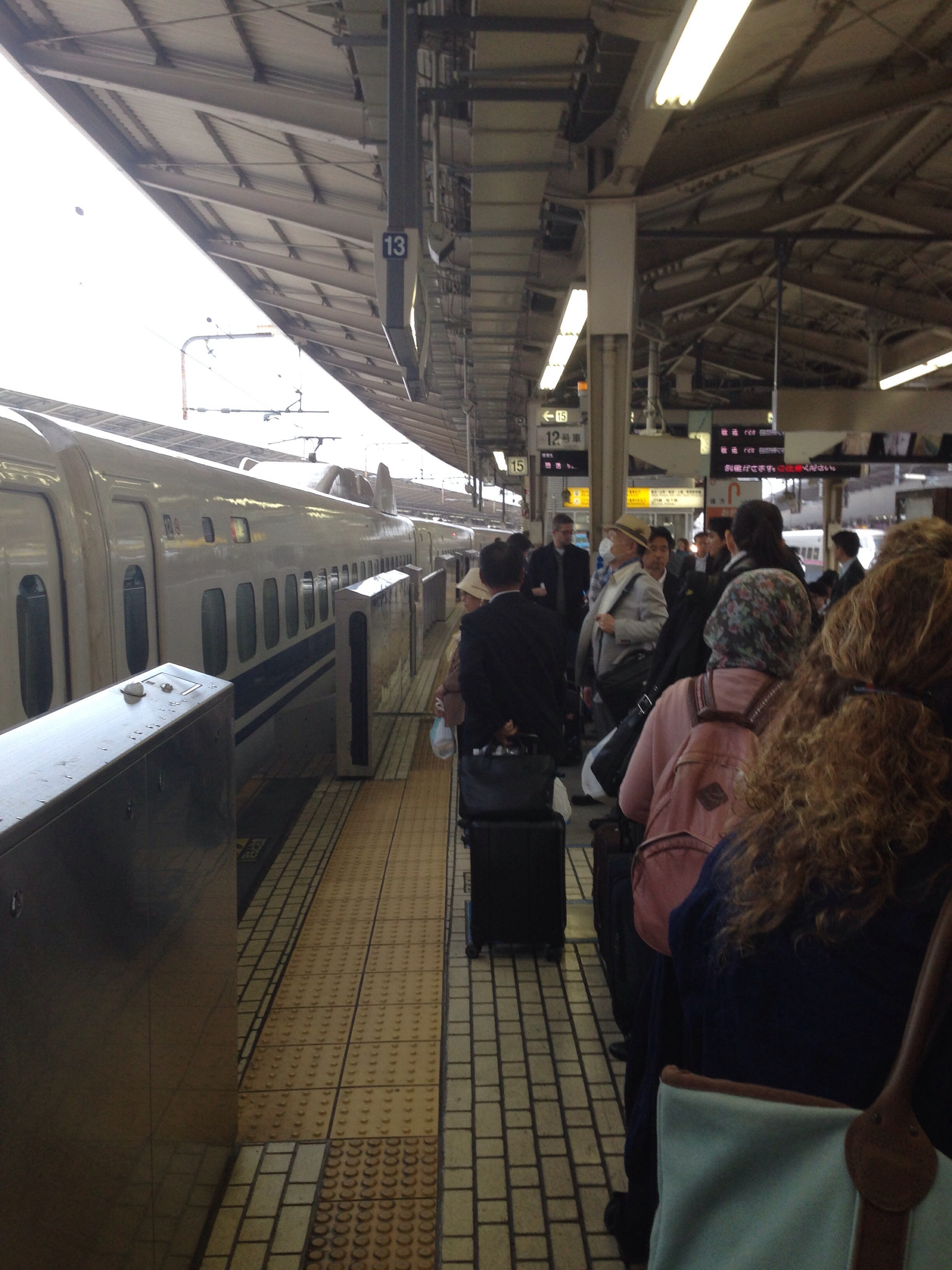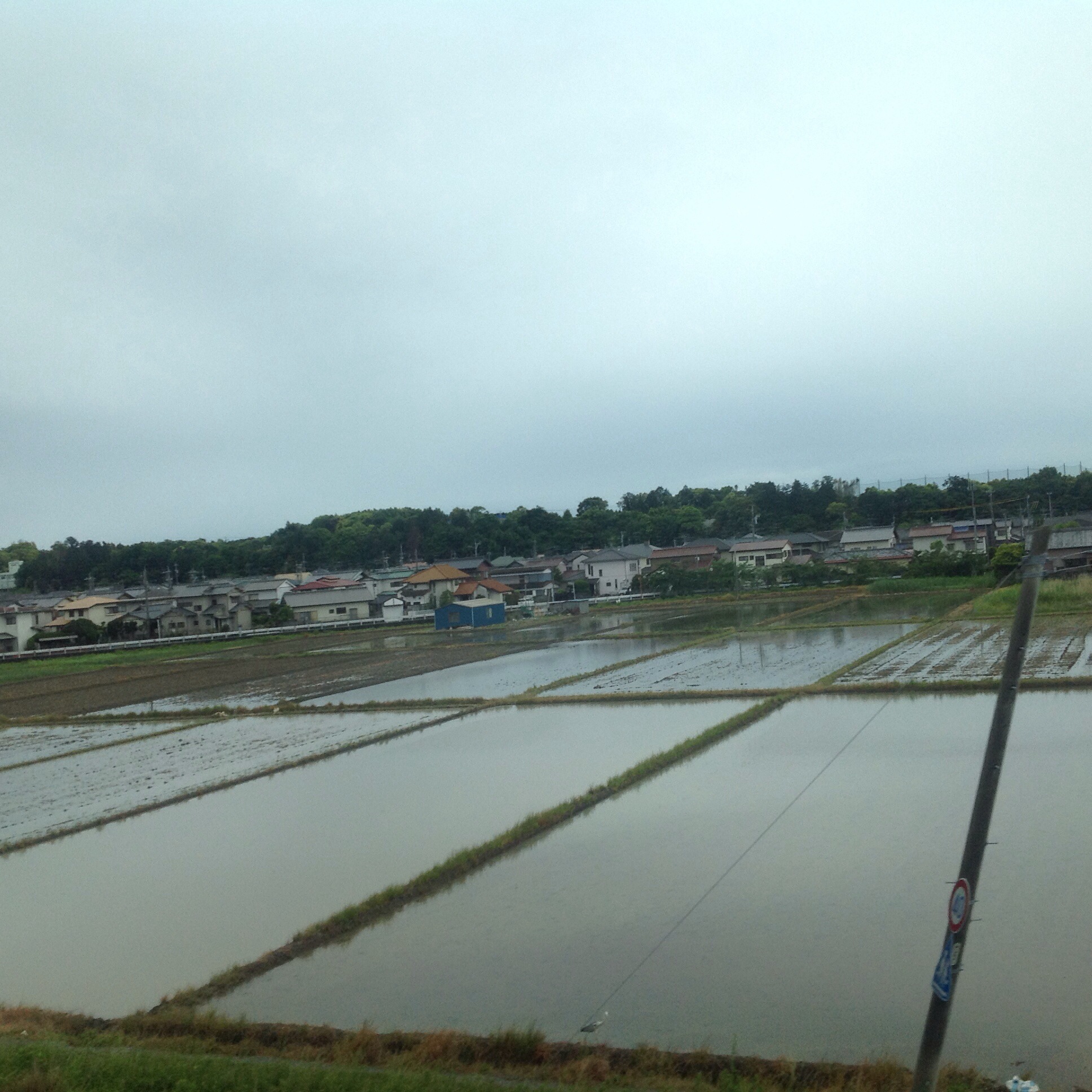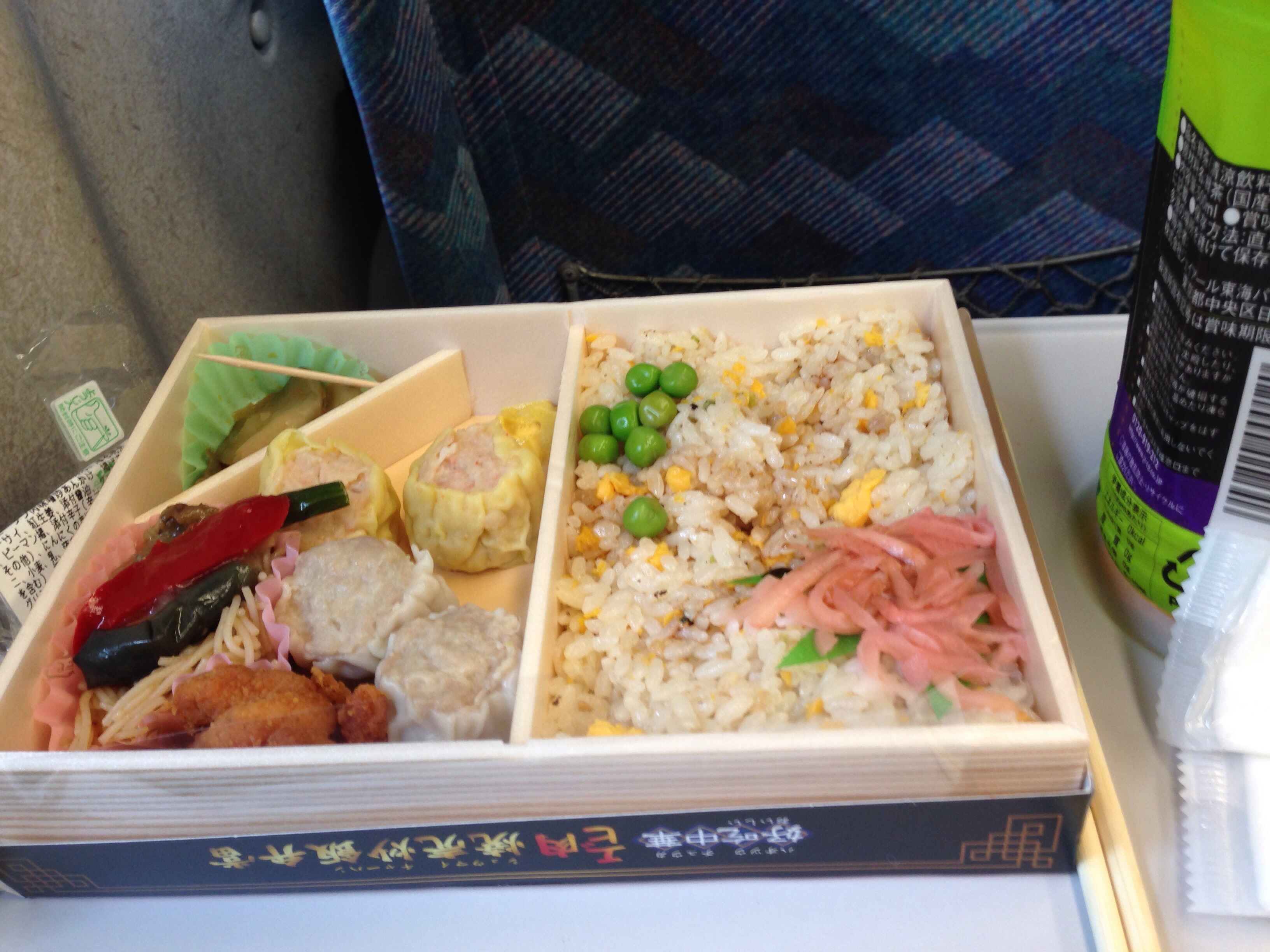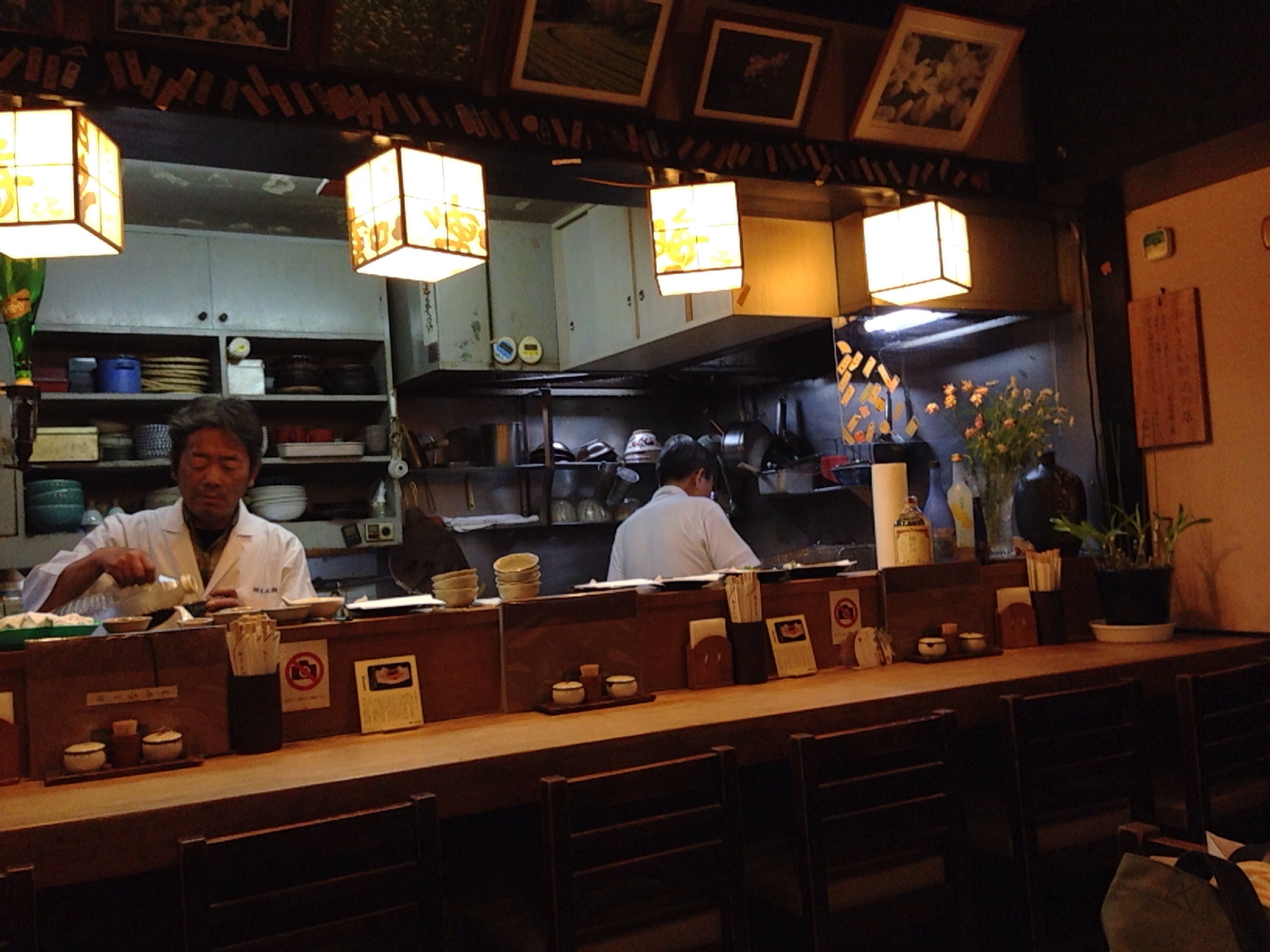Our day began early today with a lovely breakfast with the President of International Christian University, Junko Hibiya, followed by a bullet train ride past many rice fields (and the traditional bento box), ending in Kyoto.
Our discussion at one point then turned to gender roles in Japan, dovetailing nicely with a number of conversations we had been having.
President Hibiya reported that while Japan has made progress in gender issues, it is woefully lagging other countries, ranking now 120 in the status of women (mostly due to the lack of women at the head of government or heading the major corporations). She is currently the only women to serve as the president of a college or university that is not a woman’s college. Nonetheless, as do we, they struggle a bit to get some of their male students engaged–nearly all of their participants in study abroad and experiential learning opportunities are women.
Amber will likely blog more about fashion in Japan, but it is clear that women in Japan worry a great deal about beauty. Many of the signs on the subways and trains are about cosmetics, and indeed few women we see are without makeup. Our guide, Lisa, explained that women are very concerned about “future beauty” and about the aging process. We were surprised, and a little amused, to learn that sometime the many white masks we see people here wearing are not simply about disease transmission! Lisa told us that sometimes women, including her, will wear the mask and sunglasses when they have not had time to put on their makeup. Better to be seen as sick rather than lacking beauty! Lisa tells us, however, that cosmetic use among men is also high!
As day yesterday began with a presentation by a Shinto priest and ended with Sumo, we talked some about various expressions of masculinity in Japan. On the street we saw rickshaw drivers in very short shorts, and shirts displaying a sort of hypermasculinity (though we did see a woman rickshaw driver). We saw Sumo wrestlers after their match heading to the restaurant or bar, and “salary men” heading home at 9 o’clock in their nearly all black or dark grey suits. Supposedly, however, there is a class of young men who are opting out of the rigid expectations of the “salary man” life, particularly a the long commutes take them too far away from home and community. An article in Slate calls these “grass-eating men,” or soshokukei danshi (草食系男子): http://www.slate.com/articles/news_and_politics/foreigners/2009/06/the_herbivores_dilemma.html. These are men, some say as many as 60% between 20 and 34, who have shunned interest in dating, marriage, or traditional masculine ways. This has raised in Japan a bit of concern that Japanese men are becoming too feminine. But among shopkeepers, and certainly are waiter last night, traditional models of masculinity seem present as well!






